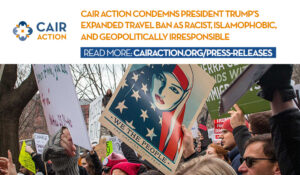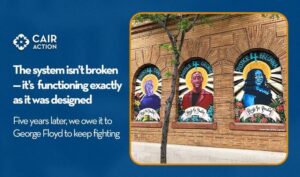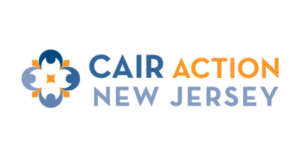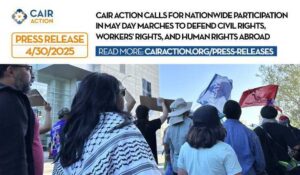Imagine an America without civil rights advocates.
No courtroom battles against racial profiling.
No protests against unjust laws.
No one showing up at city halls, school boards, or state capitols to speak for the voiceless.
Strip away the civil rights movement—and the people who carry it forward—and you’re left with a country where power goes unchecked and entire communities are rendered invisible.
For generations, civil rights advocates have served as the conscience of this country. They fought to secure voting rights for Black Americans. They stood up against Japanese American internment. They opposed the mass surveillance of Muslims after 9/11. They resisted family separations and immigrant detention camps, demanding that every human being—regardless of race, religion, or origin—be treated with dignity.
American Muslims have long played a role in that tradition, even if their stories are too often left out.
One such story is that of Nagi Daifallah, a young Yemeni immigrant and farmworker who supported the United Farm Workers during the 1970s grape strikes. At just 24 years old, he was killed by a sheriff’s deputy in Kern County for daring to organize. His death became a rallying cry in the labor movement—a stark reminder that justice is often pursued at great cost by the most marginalized. Nagi’s story is part of a wider legacy of American Muslim civil rights advocacy that must be remembered.
Today, that legacy is being actively dismantled.
On May 1, the Trump administration announced a sweeping overhaul of the Justice Department’s Civil Rights Division—the very institution tasked with protecting Americans from discrimination. The division has been steered away from addressing racial bias in policing, voting rights violations, and housing discrimination. Instead, political appointees are prioritizing so-called “reverse discrimination” cases while gutting oversight of institutions with histories of abuse. Veteran attorneys have been sidelined, investigations frozen, and data collection drastically reduced.
More alarming, the administration is pushing to rewrite the Civil Rights Act, threatening to undo one of the most important legal protections in American history. The proposed changes would make it nearly impossible to prove systemic discrimination unless someone explicitly admits racist intent. This is part of a broader campaign to shield institutions from accountability rather than protect people from harm.
This isn’t reform. It’s erasure.
Without voting rights defenders, millions of Americans—especially voters of color—could be disenfranchised without recourse. Without anti-discrimination advocates, institutions could fall back into openly biased practices. Without Muslims engaged in civic life, Islamophobia could go unchallenged. Without legal and policy experts pushing back, dangerous laws could pass unchecked.
At CAIR Action, we see every day how advocacy changes outcomes. When our communities are targeted—whether by surveillance, discrimination, or hostile rhetoric—it is advocacy that builds resilience. Through voter education, coalition work, litigation, and public engagement, we help ensure Muslims are heard, protected, and respected.
This work is not glamorous. It’s difficult, deliberate, and often overlooked. But without it, injustice thrives.
We must not take civil rights work for granted. Each generation inherits the responsibility to carry the torch.
Now it’s our turn.





